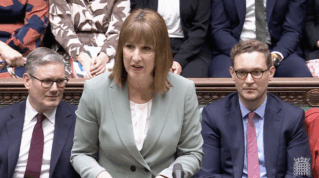In November 2017, I told the Association of College’s Annual Conference that “further education (FE) is central to the challenge of delivering a prosperous future for this country after Brexit”. Much has changed since. We’ve had to grapple with the economic and educational impact of the pandemic, not to the mention the near constant political changes in Downing Street and the DfE. Yet what I said back then remains true. The importance of FE to the country’s future has never been clearer.
Fortunately, the list of Conservatives throwing their rhetorical weight behind skills and further education has grown considerably. Rishi Sunak, Jeremy Hunt, Boris Johnson, Gillian Keegan and more have said they want to help the country to re-skill and upskill. They quite rightly see increased skills levels as a means of driving growth, supercharging productivity, tackling regional inequality and improving life chances.
Technical and vocational education and training is certainly the key which can unlock the country’s economic potential. But in setting out their pro-skills agenda, the government’s communications approach is not showcasing the sector to its fullest. They are treating skills as amorphous and theoretical when they are in fact firmly rooted in local education and training organisations.
On average, colleges work with more than 500 local businesses. They are often a leading employer in their own right. Independent training providers are equally pivotal in supporting learners and driving economic growth both locally and regionally. Yet this importance is not reflected by the government, or indeed the national media. It is on government to more clearly set the tone and state how they will make skills growth a reality.
During my time as apprenticeships and skills minister, it became clear to me that it was incumbent on government to recognise and champion skills from the grassroots level up. Without this constant advocacy and adequate finance, the gap between academic and vocational education will not be bridged.
A sea change in communications is needed
Every August, thousands of learners receive results for vocational and technical qualifications, but they are never given the spotlight those studying GCSEs and A Levels receive. This is in spite of the fact V-Certs, BTECs, Cambridge Technicals, T Levels and more make up a significant proportion of the results received during this period. Skills ministers make valiant attempts to gain more press coverage but this needs to be replicated across government.
What’s more, initiatives to put technical education in the shop window can either fall flat or be short-lived. Why, for example, do occasions like National Apprenticeship Week and National Careers Week so often come and go with so little attention?
A sea change in communications is needed. Government, and particularly the incumbents of numbers 10 and 11 Downing Street, must make a more robust effort to champion these courses with new audiences.
We have long talked about tackling the stigma associated with technical education, but a positive, accessible story is still not being told. Gillian Keegan is heavily invested in skills, and the product of an apprenticeship herself. It is not churlish to say that government could be making much more of this to influence perceptions of the sector.
The narrative power of technical education is evident: it delivers brilliant individual stories and a wider economic narrative. Finding a way to connect these dots is a challenge government must finally rise to if it is serious about changing perceptions around skills and turbocharging its economic and educational ambitions – irrespective of political parties.
The challenge is often picked up by colleges and independent training providers, the vast majority of whom do a brilliant job of marketing themselves. But more can always be done, whether that’s through working locally via social media, with local radio and media outlets or enlisting the support of those with the skills to help get the message across. Schools could arguably do more too.
I am genuinely optimistic about the future of vocational and technical education and training. But to make the most of the sector’s potential, we need vocal champions right at the top of government to start telling a more powerful story.

















Your thoughts